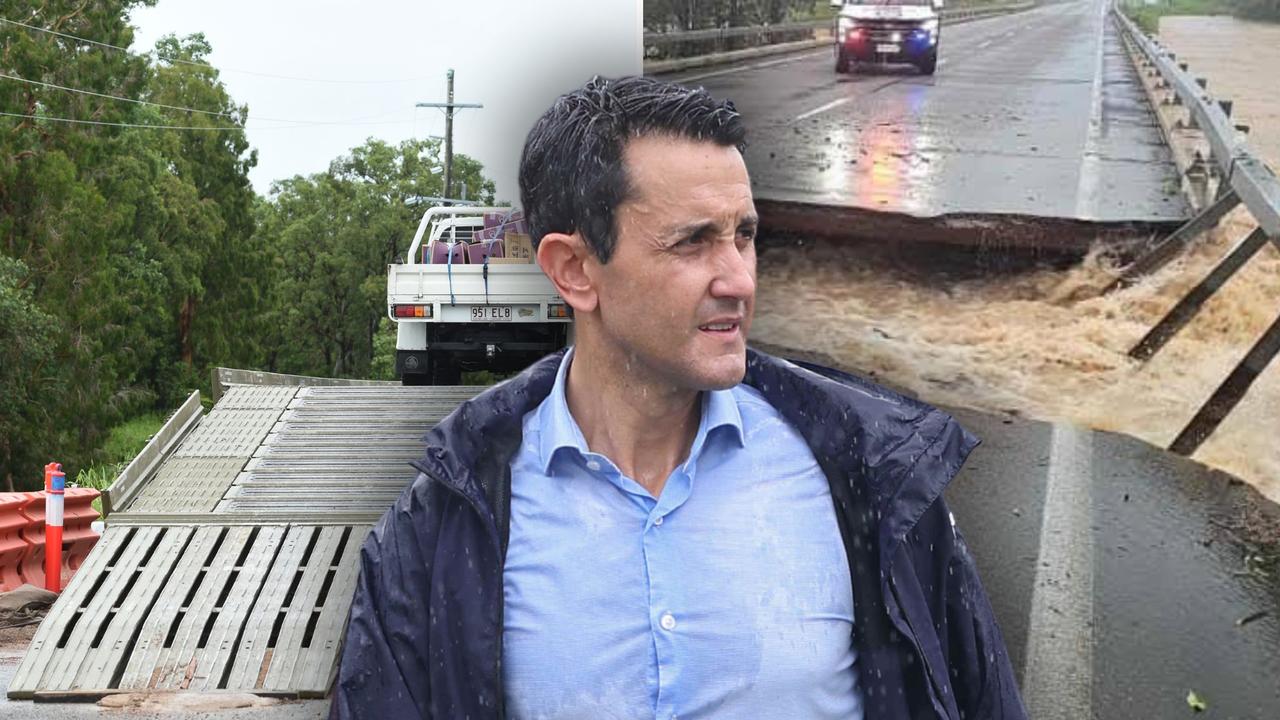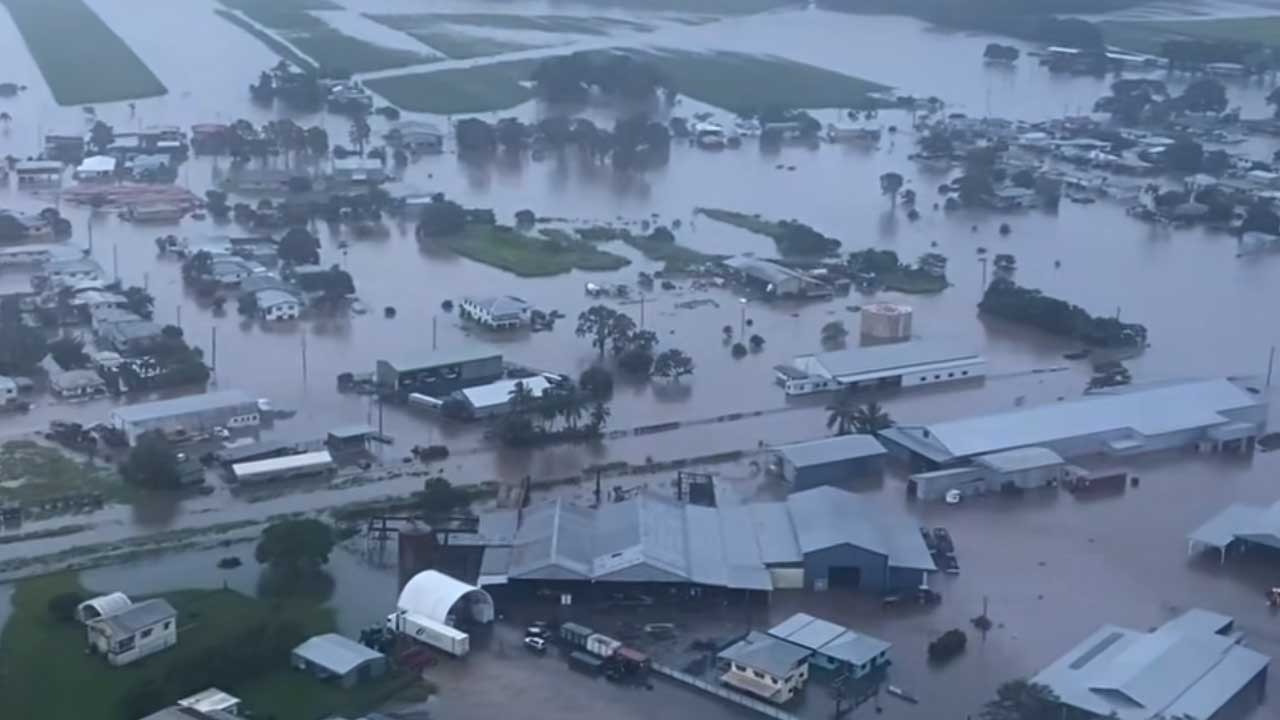Former Wallabies captain Stephen Moore slams state of Australian rugby, from grassroots to World Cup
From rugby‘s grassroots to the recent appointment of Eddie Jones as Wallabies coach, former Australian captain Stephen Moore has called out the game’s leaders for a lack of vision, writes BRENDAN BRADFORD.

News
Don't miss out on the headlines from News. Followed categories will be added to My News.
Former Wallabies captain Stephen Moore has launched a passionate critique of rugby in Australia, calling out the game’s leaders for a lack of vision, and saying the World Cup year switch of Wallabies coach is an example of the short-term thinking that plagues the code in this country.
Disillusioned by watching rugby’s decline, Moore believes the game as a whole has failed to acknowledge the issues it faces while stumbling from one issue to the next.
Those issues include concerns around Super Rugby expansion, the death of clubs in regional New South Wales and Queensland, a lack of cohesion across all levels of the game and a fixation on signing NRL players.
“Australian rugby has drifted from one level of mediocrity to the next over the last couple of decades, and we’ve never been honest about that,” Moore told CODE Sports after Rugby Australia sacked Dave Rennie and hired Eddie Jones last week.
“We’ve never fundamentally looked at the problems, and here we are again replacing the Wallabies coach.
“Sure, there’s a lot of positivity around Eddie – and I think he’ll do a really good job – but at what point are we going to fundamentally address the issues with rugby in Australia?”
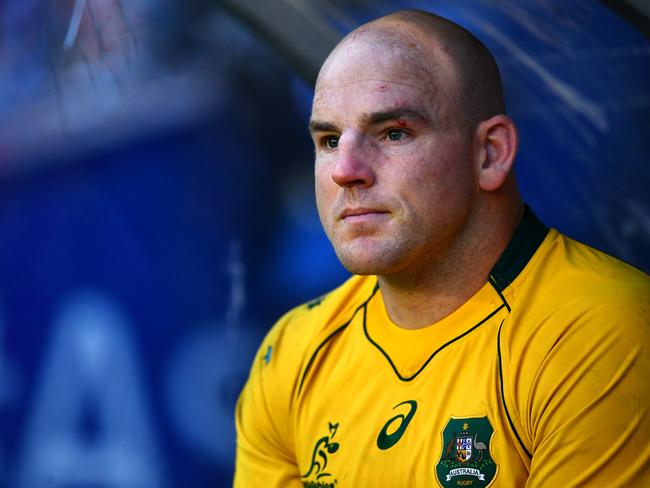
The former Reds and Brumbies hooker admits he doesn’t have all the answers, but isn’t sure the game’s current leadership does either.
“It’s disappointing,” he says. “I’m really disillusioned with the game, which is a shame, and a lot of my mates who l played rugby with are in the same boat.
“I’d dearly love for it to turn around, but the things I see and hear just blow me away.”
Lack of development
With just five wins from 14 Tests last year, Rennie’s job was never safe, and Moore has no arguments with the call to part ways with the New Zealander.
But the process of finding a replacement revealed a few uncomfortable truths.
If Jones wasn’t sacked by England in December, or if he’d been snapped up elsewhere first, there didn’t seem to be any other homegrown coaches willing and qualified to take the Wallabies job.
“Where’s the next Wallabies coach, and the one after that? What’s the plan now?” Moore, 39, asks.
“We haven’t grown our own coaches like we should’ve and now it’s biting us. Whenever the Wallabies job comes up, we’re scratching our heads about who could fill that role.
“(Hiring Jones) is almost a panicked decision because Eddie got sacked by England and they had to move quickly.
“But it’s a haphazard approach we’ve got.”
The former 129-Test Wallaby sees similar issues in other leadership roles in the game.
“Everyone’s saying who’s the next Wallabies captain – or whether it’s at the franchises – but where are they?” he continues.
“We haven’t done a good job (in developing them). We pretend we have, but we’re just kidding ourselves.”

Jones’ hiring has created a few positive headlines for the game – an Aussie rugby icon returning to, hopefully, save a doomed World Cup campaign.
But focusing purely on the Wallabies is a symptom of the top-down approach that has been failing for so long.
The game’s issues are deeper and more widespread than the national side, but those issues are never acknowledged, much less addressed.
“We seem to be taking a very short-term view on the success of the Wallabies and the game more generally,” says Moore, who captained Australia 24 times.
“We don’t have a long term vision for the game, and it’s a big problem because we continue to regress over time.
“The only thing that’s keeping us afloat is that rugby is a global game and the Wallabies have a strong brand in that global landscape due to previous success.
“That’s really the only thing that’s keeping it going. Outside of that, we’re floundering at every level.”
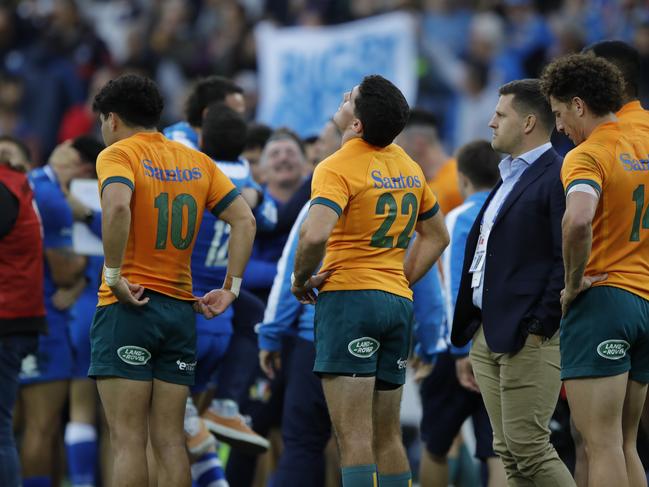
Expansion mistakes
Moore’s Super Rugby debut for the Reds in 2003 came at the tail end of a golden age for Australian rugby. A World Cup win in 1999, victory over the British and Irish Lions in 2001, and a RWC hosted in Australia coincided with regular Bledisloe Cup and Tri Nations series wins.
But, from top to bottom, it’s largely been downhill from there, and many experts place the turning point with the move from three Australian Super Rugby franchises to five.
“I think having five teams in Super Rugby has been to our detriment,” Moore says.
“I know there’s a lot of reasons why we’ve done that, but if we’re honest about how successful that’s been, to me anyway, it’s clear that we haven’t been as strong in Super Rugby because of the expansion of teams.”

The time, attention, and, most importantly, the money funneled into Super expansion has had many negative flow-on effects throughout the game in Australia.
“We haven’t got the benefits for what it’s cost us, and it costs a lot of money to go down the expansion route,” Moore says.
“This is only my opinion, but if you had put the same amount of money into regional New South Wales and regional Queensland, maybe some of those clubs that have disappeared over the past 20 years would still be there.
“Look back through history, a lot of great players have come out of country New South Wales and country Queensland, and those pathways, they’re not like they used to be.
“There are little clubs that aren’t there anymore.
“We’ve only got so much money to go around, and I think the money that’s been spent on those expansion clubs, for very little return, it’s a travesty.”

Rugby league fixation
Jones was one of the masterminds behind luring rugby league stars Wendell Sailor, Mat Rogers and Lote Tuqiri to union ahead of the 2003 World Cup. Now back at the Wallabies after 17 years, he has hinted at similar plans to poach current NRL stars who played rugby for Australia at schoolboys’ level.
Roosters young gun Joseph Sua’ali’i is rumoured to be high on the list, while Tolu Koula, Taane Milne and Melbourne’s Kiwi forward Nelson Asofa Solomona are all reported targets as well.
The common assumption in rugby circles is that players switch codes because of the instant financial benefits, but that’s a dangerous misreading of the situation says Moore.
“I get embarrassed when I read stuff about, ‘They’re only playing league because of the money’,” he says.
“It’s disrespectful to coaches like Trent Robinson and Craig Bellamy and guys like that. They run good programs, they’re successful, they’re high-performing and they’re very well run.
“Don’t assume everyone’s going for the money.”

Rugby Australia’s near-obsession with poaching established NRL players is yet another example of the game looking for a quick-fix solution to deep and ongoing problems.
“Honestly, they must just be laughing at us at the NRL,” Moore says.
“Once again, it’s a short-term approach to fixing your problems.
“How do we think differently about retaining our best players? We’ve gotta have something better that doesn’t involve money, and at the moment we don’t.
“I just never hear us being honest as a code.”

No easy solution
The first part of fixing a problem is admitting you have one, but that’s something a steady stream of administrators at all levels have seemingly been unwilling to do.
“It starts with community rugby, goes up to the provincial game, the women’s game and Sevens rugby,” Moore says.
“It’s been 20 years since we’ve been fair dinkum about being the best in the world.
“At different times over the past 20 years, we’ve had mixed levels of success – a World Cup final here and there – and for a long time we have been in the top two or three teams in the world, which is great. But we’ve never been the best in the world.
“That’s where we’ve been before and where we need to get to, but there’s no real long term vision for the game in Australia that I can see.”
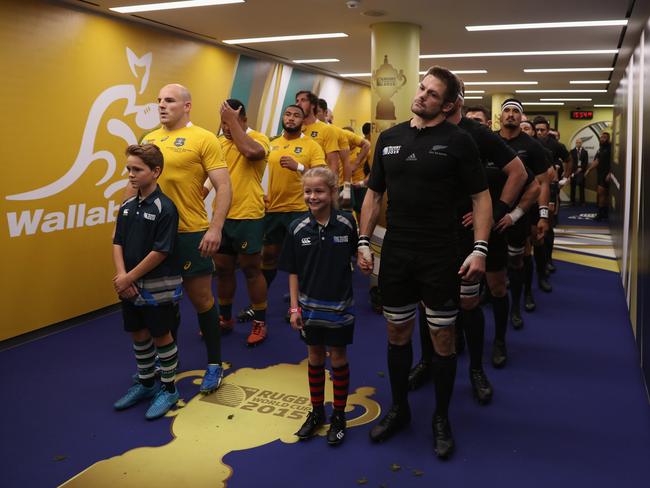
It won’t be easy, but there is an obvious place to start.
“We need to be honest in saying that we need to build it back from the ground up,” Moore says.
“Changing the Wallabies coach, while it comes with some positivity, it’s not going to solve the problems in the long term.
“We need to work together a lot more, that’s really important.
“We need more alignment between the provincial unions around high performance, commercial arrangements – all that kind of stuff.
“For that to happen, the head organisation needs to be humming. We need to get our own backyard in order before asking New South Wales, Queensland and the Brumbies to sign up.”
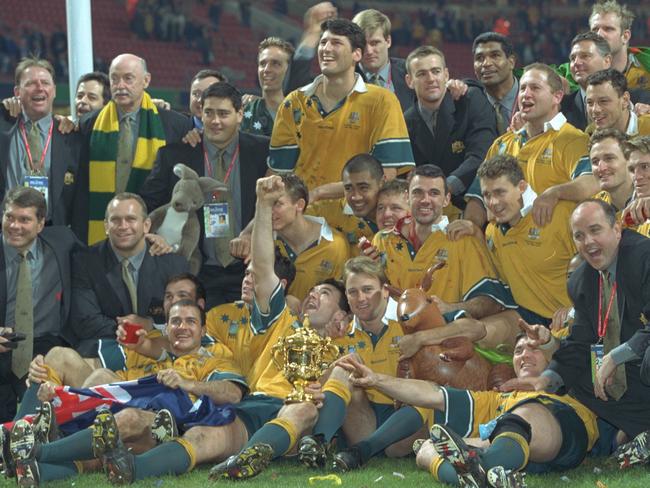
Over the past decade, Ireland have created a successful blueprint for that approach, with the national side currently sitting atop world rugby’s rankings less than nine months out from the World Cup.
“They’ve got a centralised approach to high performance,” says Moore.
“Everyone’s on the same page, and everyone’s aware of what everyone else is doing. We’ve been slow to adopt to that.”
Moore hasn’t completely given up hope on a turnaround, but has never seen the game in such a perilous state. And, with a massive couple of years coming up, including a Lions tour and men’s and women’s World Cups to be staged in Australia between 2025 and 2029, it’s critical that some tough, but smart decisions be made.
“I would say it’s beyond make or break, we’re well beyond that stage,” Moore says.
“It’s a long conversation, but the first part of fixing something is admitting you have a problem, and it’s absolutely critical we get it right.”
Originally published as Former Wallabies captain Stephen Moore slams state of Australian rugby, from grassroots to World Cup


